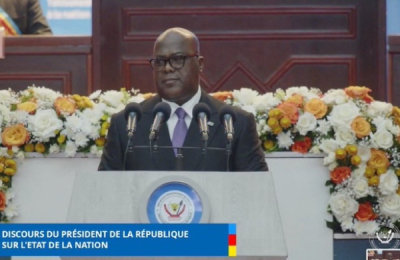The TALO price-control app is scheduled to begin its rollout in November across several cities in the Democratic Republic of Congo (DRC). The announcement was made on Tuesday, October 7, 2025, by Minister of National Economy Daniel Mukoko Samba during an interview on Kinshasa-based Top Congo FM.
The minister said the first phase will cover seven major cities, with six more to follow by year-end. The goal is to enable real-time tracking of prices for food and other staple consumer goods.
Developed by young Congolese professionals, TALO was unveiled by Minister Mukoko Samba on January 14, 2025. Designed to modernize the economic inspection service, the app helps field agents collect data more efficiently and increases transparency in business practices for consumers.
In Kinshasa, where the application is already in use, TALO has replaced manual price reporting. Agents now record data on their phones at market sites and send it directly to a central database. According to Jocelyne Mayungu Bwanga, head of the Kinshasa-East office at the Ministry of National Economy, the switch to digital data collection has significantly reduced processing times.
The ministry posts monthly reports on its official website summarizing the data. The latest report, for July, showed that weekly price tracking in Kinshasa covered 39 staple consumer products, 183 brands, and 62 types of traders across 16 markets, including Central, Gambela, Zigida, and Liberté.
Price differences of up to 40% were sometimes observed for the same product between different outlets. To identify the underlying causes, the ministry has commissioned a Congolese consulting firm to conduct a study. One preliminary finding points to two main supply routes: goods entering through the Lufu border with Angola tend to be cheaper than those coming via Matadi port.
By expanding TALO to the provinces, the Ministry of National Economy aims to strengthen its nationwide price-monitoring and regulatory capacity. The ultimate goal is to curb market speculation and protect consumers’ purchasing power.
Timothée Manoke










